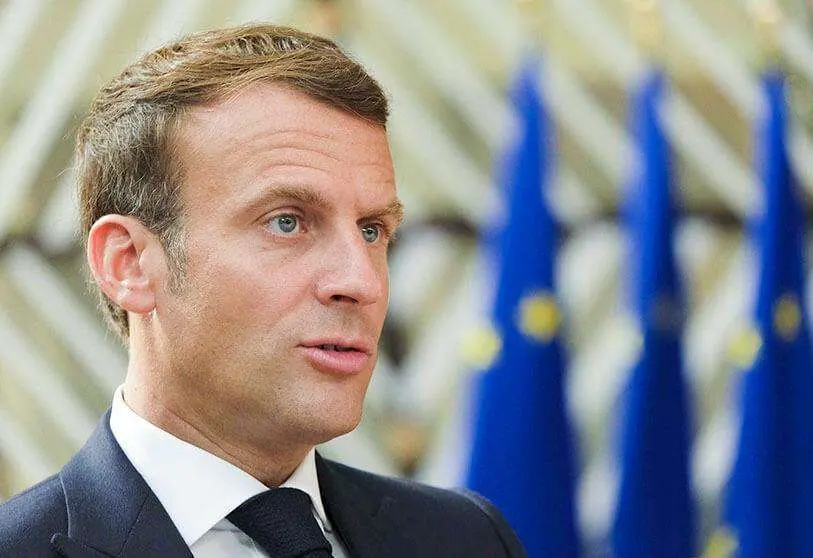Russia, between humiliations and caresses

The Ukrainians were not at all pleased with French President Emmanuel Macron's statement that it is very important "not to humiliate Russia". Macron, who also holds the rotating presidency of the European Union, was referring to the need to leave the door open for diplomatic negotiations once the war is over. The Ukrainian foreign minister, Dmitro Kuleba, immediately responded to these statements by asserting that Macron's words "are truly humiliating France".
Less ostensibly but with similar displeasure, the Baltic states, as well as Poland, Romania, Bulgaria and Slovakia, have also questioned Macron's statements, generally believing that they sabotage efforts both to push Vladimir Putin to stop ravaging Ukraine and bring him to the negotiating table, and to ensure that he does not get off scot-free for having undermined international law by invading a sovereign country.
The episode goes beyond the strong discrepancy between direct and indirect actors, but all concerned, in this new version of a global conflagration, at least in terms of the globalisation of its effects. The devastated Ukraine, whether in the words of Kuleba or in the daily utterances of President Volodymir Zelensky, demands that the international community "put Putin in his place", which in his view will not be achieved through condescending and excessively sympathetic attitudes.
Macron justifies himself on the grounds that, long before Putin even unleashed his so-called "special military operation" in Ukraine, he has not ceased his efforts to stop the destruction of Ukraine and the carnage to which he is subjecting Ukrainians. I have told Putin," says Macron, "that he is making a historic and fundamental mistake for his people, for himself and for history. Based on the results, it seems that the French leader's ascendancy over the Russian president is quite describable.
Almost simultaneously, Putin's right-hand man, now at the head of his Security Council, Dmitry Medvedev, thanked "Arab friends for their absolutely balanced, moderate and calm position" in the Russia-Ukraine conflict. Medvedev, Putin's former prime minister and former 'armchair warmonger' president while Putin returned to the highest office after legislative arrangements, made the remarks to Al Jazeera, the most widely broadcast television network in the Arab world.
Medvedev went on to praise, stating that "most Arab countries have understood that this conflict has historical roots, also that we are trying to settle it at the negotiating table, and they maintain a neutral position without taking sides. We appreciate that very much".
Indeed, despite the fact that all Arab countries except Syria voted against Russia at the famous UN Assembly plenary session on 2 March, there have been very few and almost imperceptible statements of condemnation or calls for sanctions against Russia on their part, in stark contrast to the consensus on this issue shown by Western countries.
It should also be noted that Medvedev did not forget in the aforementioned interview to "thank Israel for its invaluable help" as mediator in the negotiations with Ukraine. Naftali Bennett's government has maintained an ambiguous and ambivalent position, trying to keep bridges open with Moscow, with whom it has strong ties of cooperation, a stance that has earned it quite a few reproaches, especially from the Ukrainian Jewish community, which even took a long time since the outbreak of the war to provide it with shelter and refuge.
As for the Arab countries, many depend on grain imports from both Ukraine and Russia, and supplies have led to shortages and the first stirrings of revolt. Images gathered by special envoys from various European and American media have shown Russian ships allegedly loaded with thousands of tonnes of wheat stolen from conquered Ukrainian warehouses and destined primarily for Syria and Egypt. Al Sisi's government reportedly refused to allow one of these ships to unload its cargo on the grounds of 'insufficient documentation', after Cairo was alerted to the Russian theft of such a shipment of wheat.
As in any war, and this one has global ramifications, everything is susceptible to being turned into a weapon of war or communication for the imposition of the narrative. Europe, the United States and Ukraine itself fear that Russia will convince African countries that Western countries and their sanctions against Russia are to blame for the famine that is affecting much of Africa. Other countries, such as huge India, are taking advantage of the business opportunity provided by the war: they buy from Russia at a very cheap price the oil that Moscow no longer sells to Europe, refine it and resell it at a much higher price to Europe itself, but now under an Indian label.
This is nothing new, but it is worth knowing, especially as all these facts will have to be discussed at the NATO summit in Madrid to decide on the strategy that will determine the new post-war international order.
Pedro González is a founding journalist of the Euronews channel

